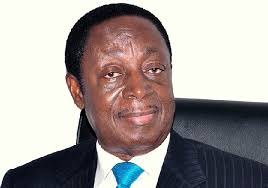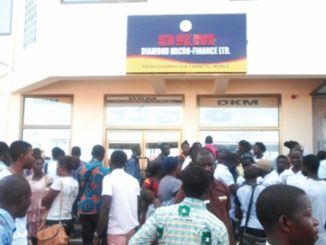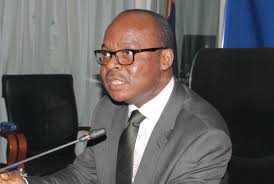Dr. Kwabena Duffuor’s suit against the Bank of Ghana (BoG) over the revocation of the license of defunct uniBank has been struck out by the Supreme Court.
The court presided over by Justice Angelina Mensah-Homiah, said Dr. Duffuor’s lawyers had used the wrong avenue for legal address.
Dr. Duffuor sued to get the court to declare the license for the Consolidated bank, null and void.
The suit came three weeks after the BoG revoked the license of UniBank and four other banks for facing severe liquidity issues.
The BoG, in turn, challenged the capacity of the General Jurisdiction Court hearing the lawsuit.
Dr. Duffuor’s lawyers argued that the revoking of uniBank’s license was in breach of Articles 18 and 20 of the 1992 Constitution, which protects the right to private property and prohibits the compulsory takeover of a private property.
But the Accra High court in a 13-page ruling said the matter of revocation of uniBank’s licence must first be heard by an arbitration centre, as prescribed under the Banks and Specialized Deposit-Taking Institutions Act, 2016.
This was after the BoG’s team had argued that Dr. Duffuor’s suit was flawed.
The defence argued that Dr. Duffuor should have “proceeded by way of judicial review in the form of an originating notice of motion if they intend to question the decision of an administrative body and not by way of a writ of summons.”
Since the suit is based on the revocation of the licence “Act 930 has specifically made provision for a procedure to seek remedy, it is that procedure alone which must be followed,” the ruling noted.
Section 141 (1) (a) of Act 930 prescribes that “any person who is aggrieved with a decision of the Bank… and that person desires redress of such grievances, that person shall resort to arbitration under the rules of the Alternative Dispute Resolution Centre.”
Dr. Duffuor’s counsel, however maintained that “the constitutionally protected property rights of the plaintiffs have been violated by the defendant, and such infractions are not arbitrable and the application is a mere attempt to delay proceedings.”
“In the peculiar circumstances of this case, the court is of the humble opinion that the plaintiffs cannot be put to their election as to whether the human rights aspect must be struck out so that the outstanding reliefs which certainly fall within sections 123 to 139 of Act 930, are referred to arbitration.”
“The net effect is that the Plaintiffs’ Writ of summons in its present form cannot stand and the same is accordingly set aside and the struck out,” the ruling concluded.
–
citinewsroom




